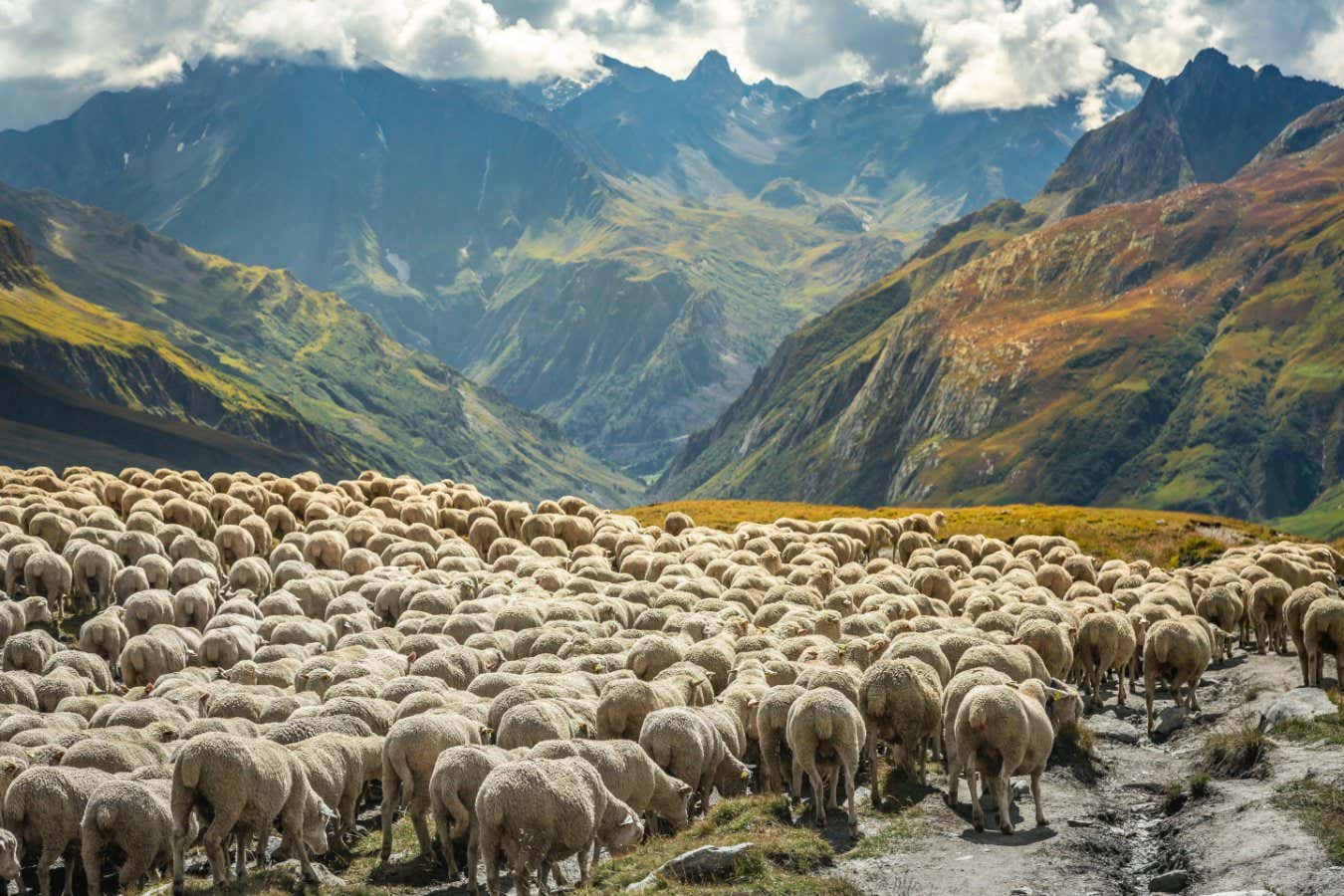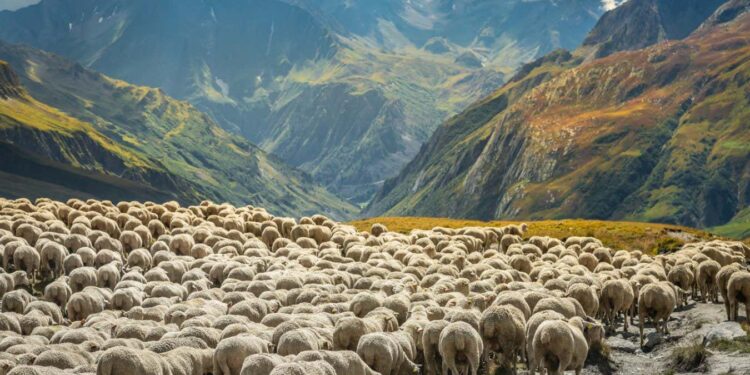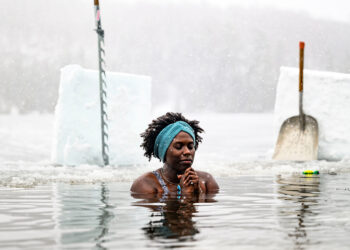
A flock of sheep in a valley in the French Alps
Travelart / Alamy
Rapid erosion due to human activity, such as grazing livestock and farming, has stripped the Alps of almost all the soil formed since the retreat of the glaciers. This soil developed over millennia as plants, microbes and weather transformed hard rock into the carbon-rich foundation of this mountain ecosystem.
“We destroyed the soils at a rate four to 10 times faster than they grew,” says William Rapuc at the French National Centre for Scientific Research.
He and his colleagues studied lithium isotopes in sediments from Lake Bourget in the French Alps to reconstruct patterns of soil erosion from the surrounding region over the past 10,000 years. Because certain lithium isotopes are enriched as clay and other minerals form from the parent rock, they can tell you if the soils are developing or eroding, says Rapuc.
They then compared these patterns of soil erosion from the lake sediment with other records of changing climate and human activity in the region. For the first several millennia after the glaciers receded, changes in climate could explain patterns of soil loss. Then, around 3800 years ago, something shifted. “What’s not explained by climate… has to be explained by the impact of humanity,” says Rapuc.
The researchers identified three surges in soil loss, each of which they think corresponds with a different type of human activity in the area. Between 3800 to 3000 years ago, the surge came from grazing livestock at higher altitudes. Farming at lower altitudes drove the next surge, which happened between 2800 and 1600 years ago, and more intensive agriculture using ploughs and other tools drove the final surge from 1600 years ago until today. The loss of soil in the Alps accelerates erosion from wind and water, and means the region has less capacity to support vegetation and crops.
The researchers say this shift 3800 years ago marks the beginning of a “soil Anthropocene” in the region, in which humans are the dominant influence on soil. But this past influence of soils “is nothing compared to what we can do now”, says Rapuc.
For instance, in the US, where the soil Anthropocene started only a few centuries ago, soil loss is occurring at a rate as much as 1000 times faster than before the last glacial period, says Daniel Rath at the Natural Resources Defense Council, an environmental advocacy group. “We are fundamentally shifting how soils are actually formed and developed because of our agricultural activities.”
Topics:
Source link : https://www.newscientist.com/article/2488768-ranching-and-farming-have-eroded-almost-all-the-soil-in-the-alps/?utm_campaign=RSS%7CNSNS&utm_source=NSNS&utm_medium=RSS&utm_content=home
Author :
Publish date : 2025-07-18 17:00:00
Copyright for syndicated content belongs to the linked Source.














